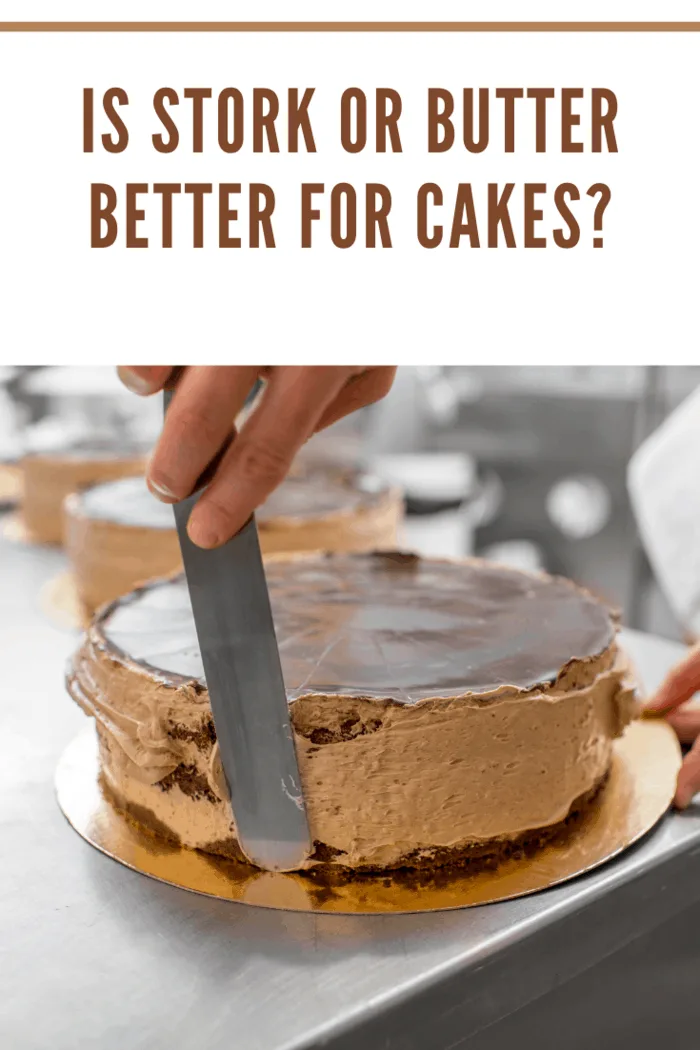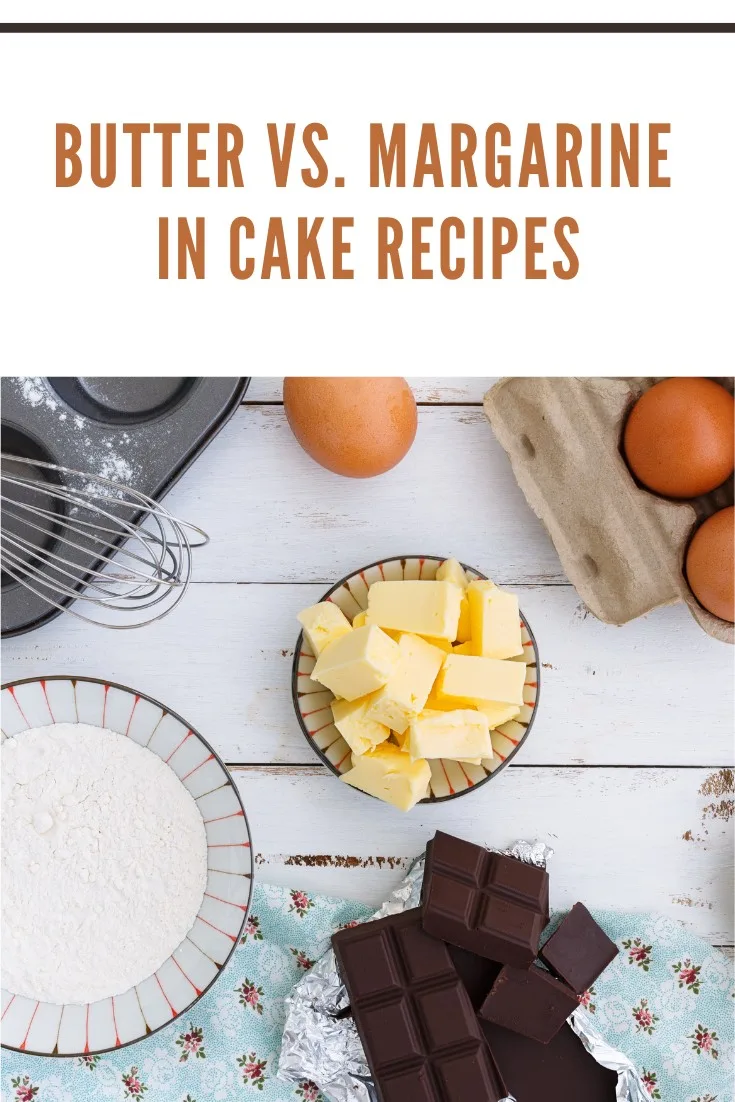Wondering whether margarine or butter is better for cakes? We have the ultimate guide.
If you’re new to baking, you might be a stranger to the butter vs. margarine dilemma. Most traditionalists tend to favor margarine over butter, while many new-age bakers are butter loyalists through and through. Still, no matter which side you’re on, it’s critical to know when to choose which ingredient and why. After all, neither butter nor margarine is best for all cakes.
If the butter is the ingredient of choice in your particular baking scenario, we celebrate your choice; however, if you aren’t even close to deciding the matter, let us enlighten you further.
Today, we’ll give you a brief history lesson on Stork and what’s made it butter’s number one competitor in the cake baking department.
We’ll also discuss an alternative ingredient that can work or even better than margarine and butter for baking moist cakes.

What Is Stork?
Stork is a brand of margarine that has been gracing kitchens since the beginning of time.
Well, maybe not quite that long, but long enough for most traditional bakers to be hesitant about replacing it.
Arguments have been going around about this classic ingredient being better than butter for baking, but how true are they?
Where the Stork vs. butter squabble is concerned, many British homeowners will certainly be on Stork’s defense.
They grew up eating pastries baked with this type of margarine, which generally retails close to half the price of butter.
The general reasoning is that butter triumphs over Stork taste-wise, but it doesn’t have Stork’s ability to moisten.
When baking a sponge cake, for example, it is said that you would have a better chance of maintaining a soft texture and level rise using Stork margarine.

The Battle of the Fats
In the context of sponge cake baking, when you pit butter, margarine, and dairy-free spread against each other, you’ll likely get the following results.
Dairy-Free Spread Underperforms
This isn’t surprising, given that sponge recipes rely on dairy.
What you’ll get with the dairy-free spread is a light-colored cake that’s relatively tasty and has a light, fluffy texture.
While falling within the range of “acceptable,” the dairy-free sponge cake still doesn’t come close to its butter-made counterpart (though it comes pretty close to the margarine-made sponge cake).
That might have a lot to do with its duller flavor and artificial aftertaste, which are especially apparent when you’ve tasted the butter sponge.
Nevertheless, a sponge cake created with a dairy-free spread isn’t considered a failure when done correctly.
Its light color and texture still make it a delicious dessert.
Margarine Performs Well
Sponge cake made with margarine isn’t that much better than a dairy-free sponge.
Assuming both were baked under ideal conditions, a margarine sponge cake would probably only rate one or two points higher than the dairy-free version on a 1-10 rating scale.
Still, the improvement in texture, consistency, and color is noticeable.
Aside from being more appealing to the eyes, a margarine sponge cake is tastier and creamier than the dairy-free alternative.
Of course, it’s not without its downsides, especially in comparison to the butter sponge cake.
You’ll notice immediately that it won’t be as creamy and has a little dry texture.
However, its top will be the softest, and it’s bound to stay fresher for longer than the other two.
Butter Wins, Hands Down
As they say, “everything tastes better with butter.”
It isn’t a surprise that butter wins this battle convincingly.
Of the contenders, butter is also considered the most natural fat, so it might not matter to you that it can also be the most difficult to soften (although these hacks from HuffPost should help considerably).
Butter can help you nail that ideal sponge cake look from color to texture, achieving just the right darkness with the perfect crusting.
If you’ve been a long-time sponge cake fan, you’ll notice that this version is more of an ode to the classic sponge cake than the other two.
It just has sweetness, creaminess, and crispness all going for it.
Though, a slight drawback to the butter-made sponge cake is its heaviness.
It can make some people feel full with just a few bites.
This is not a good thing if you’re looking to savor more of the experience but excellent if you’re on a diet.
Oil for Maintaining Moistness
While many love cake, not all are looking to finish an entire layer in a single day.
If you’re planning to keep the rest of your cake for a few days, or even a week, it would be a good idea to use oil when baking it.
Oil is the magic that keeps your cakes from drying out.
If oil is your baking fat of choice, consider adding it to a couple of eggs and sugar that have been whipped together.
When you do it this way using good-quality oil, you can get some of your cakes to stay fresh for up to an entire week.
Of course, this will also depend on the cake since cheaper oils might work well enough for certain recipes.
One good vegan option is coconut oil, but it can mess the flavor up.
Nevertheless, if you don’t mind its strong taste, feel free to add it to your list of ingredients.
Choosing the Best Fat for Your Cake
Ultimately, choosing the best fat for your cake recipe comes down to taste and personal preferences.
While most will favor butter over Stork and other fat alternatives due to its superior texture and flavor, others might have some reservations about using it for their particular baking scenario because of its drawbacks.
On the other hand, most of these alternatives are perfectly capable of creating mouthwatering cakes in certain scenarios.
Baking is a journey, explains Forbes, that comes with its fair share of trials and errors.
Although you can always learn from experts’ experiences, your own experiences and experiments help you grow the most.
